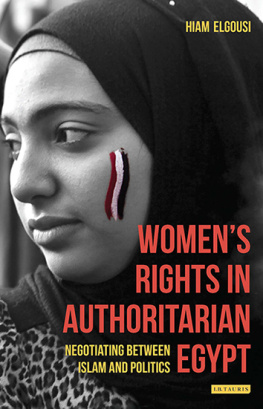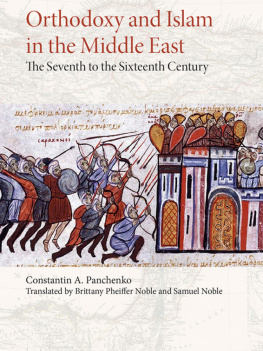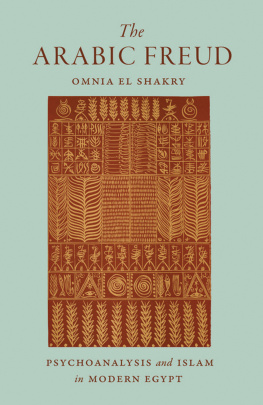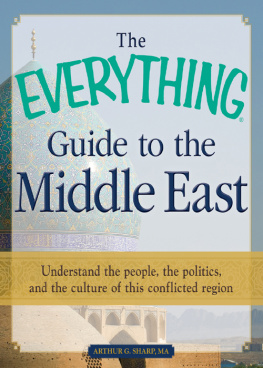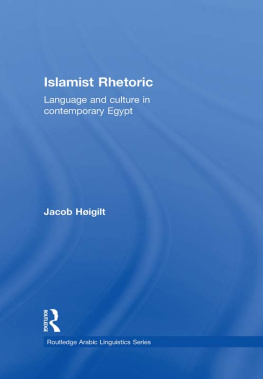
Hatsuki Aishima is Lecturer in Modern Islam at the University of Manchester. She holds a DPhil in Oriental Studies from St Antonys College, University of Oxford.
Abd al-Halim Mahmud is in many respects a pivotal figure. Aishima could easily have produced a solid life and times biography with a few forays into social context. Instead, she situates her treatment of Mahmud firmly into the contexts of intellectual sociology and a finely tuned understanding of how successful religious figures have had to navigate the hazardous currents of public recognition.
Dale F. Eickelman, Ralph and Richard Lazarus Professor of Anthropology and Human Relations, Dartmouth College
By considering the intersection between public, media technologies and self, Aishima effectively proposes a new model for the study of intellectuals. What is at stake is not anymore the life history of intellectuals, nor the social milieu that produced them, but the ways in which a process of subject formation encounters technological forms in relation to an audience.
Setrag Manoukian, Associate Professor of Islamic Studies and Anthropology, McGill University
Public Culture and Islam in Modern Egypt uses the life and work of one of Egypt's most important Islamic scholars, Abd al-Halim Mahmud, to investigate some of modern Egypt's most important issues. The book uses an innovative mixture of methodologies to lead the reader on an amazing tour of Egypt's present and recent past, taking in everything from the relationship between Islam and the state to the symbolic role of Paris, from the politics of Islamic television soap operas to the status of Sufism. Hatsuki Aishima knows these and other issues well, and does an excellent job of sharing her understandings.
Mark Sedgwick, Professor of Arabic and Islamic Studies, Aarhus University
PUBLIC
CULTURE AND
ISLAM IN
MODERN EGYPT
Media, Intellectuals and Society
H ATSUKI A ISHIMA
Published in 2016 by
I.B.Tauris & Co. Ltd
London New York
www.ibtauris.com
Copyright 2016 Hatsuki Aishima
The right of Hatsuki Aishima to be identified as the author of this work has been asserted by the author in accordance with the Copyright, Designs and Patents Act 1988.
All rights reserved. Except for brief quotations in a review, this book, or any part thereof, may not be reproduced, stored in or introduced into a retrieval system, or transmitted, in any form or by any means, electronic, mechanical, photocopying, recording or otherwise, without the prior written permission of the publisher.
Every attempt has been made to gain permission for the use of the images in this book. Any omissions will be rectified in future editions.
References to websites were correct at the time of writing.
Library of Modern Middle East Studies 141
ISBN: 978 1 78076 621 8
eISBN: 978 0 85772 964 4
ePDF: 978 0 85772 760 2
A full CIP record for this book is available from the British Library
A full CIP record is available from the Library of Congress
Library of Congress Catalog Card Number: available
To the memory of my grandfather, Sakan Aishima (19132001)
LIST OF ILLUSTRATIONS
The cover of a Muslim Brotherhood monthly, al-Itisam, published shortly after Abd al-Halim Mahmud's death in November 1978. The cover says The Grand Imam is dead and the entire Islamic world shakes in grief.
A poster of Abd al-Halim Mahmud posthumously created by his followers to celebrate his legacy. On top a verse of the Quran says But for those who are on God's side there is no fear, nor shall they grieve [10:62]. Bottom left is a photo with Jimmy Carter and Shaykh al-Sharawi.
Abd al-Halim Mahmud's mosque in his native village on the day of his birthday celebration, 1 May 2008. Photograph by the author.
Cairo landscape of rooftops with numerous satellite dishes. Photograph by the author.
A book shelf at Cairo Book Fair, 2008, dedicated to Abd al-Halim Mahmud's work. Photograph by the author.
An illustration from the culture section of Egyptian women's magazine, Nisf al-Dunya.
ACKNOWLEDGEMENTS
Even after his death, Abd al-Halim Mahmud (191078) continues to give spiritual guidance to his followers through various mediums, including dreams. He is yet to appear in mine. Hence, the completion of this work owes great debt to numerous individuals who supported me over the decade of an intellectual trajectory bringing me to Kyoto, Oxford and Cairo as a graduate student, then to Berlin and Osaka as a research fellow, and finally to Manchester as a lecturer. My special thanks go to the family members of Abd al-Halim Mahmud, especially Mani Abd al-Halim, Hussein Abdel-Halim and Malak Reda for their patience and generous support. It is deeply regretful that Dr Mani will not see the final product of this research project.
The seeds of this study were sown at Kyoto University. I am grateful to Yasushi Kosugi and Yasushi Tonaga for encouraging me to write on this Egyptian Sufi scholar. Abd al-Halim Mahmud was certainly the topic with wings which brought me much further than expected.
During my fieldwork years in Egypt, I received academic support from al-Azhar University and Cairo University. I would like to thank Hatem and Samer El-Karanshawy, Ahmad al-Tayyib and Abd al-Aziz Sayf al-Nasr for facilitating my work at al-Azhar. At Cairo University, Hassan Hanafi, Ahmed Zayed, Isam Hamza and Karim Elsaiad provided me with assistance as well as company. My studies at Cairo University was supported by the Rotary International Ambassadorial Scholarship. I am grateful to Rotarians in Cairo as well as in Saitama for encouraging me to pursue my ambitions.
Many thanks to my friends and colleagues who have provided me not only intellectual but also spiritual strength to carry on thinking about Abd al-Halim Mahmud and his audiences: Hanan Shawky, Shereen Abdelfatah, Mohab Attia, Amr Farouk, Hany Hassan, Lucie Ryzova, Dominic Coldwell, Hilary Kalmbach, Raja Adal, Jana Holla, Vit Sisler, Aymon Kreil, Marcello Mach, Kieko Obuse, Yuki Imoto, Hassan Ko Nakata, Kenichiro Takao and Samuli Schielke.
The key ideas of this work were inspired by the discussions I had at the University of Oxford with my thesis advisors Walter Armbrust and Ronald Nettler. Their supervision was superb in allowing me to experiment on the analytical frameworks as well as preventing me from losing my way in the ocean of knowledge. I am equally grateful to my examiners, Jessica Winegar and Andreas Christmann for their valuable comments and criticisms. While it is indeed a relief to see the end of my student days, I will always miss the comfort of having somebody to turn to for advice.
My fellowship years at the Centre for Modern Oriental Studies in Berlin (ZMO, 201011) and the National Museum of Ethnology in Osaka (MINPAKU, 201112) provided me with the opportunity to thoroughly revise and edit the manuscript. I am indebted to Gudrun Krmer and Ulrike Freitag for hosting me in Berlin. I would also like to express my gratitude to Tetsuo Nishio, Akiko Mori, Minoru Mio, Hironao Kawai, Mari Miyamoto, Atsuko Tsubakihara and Kenji Kuroda for making my time in Osaka intellectually rewarding.
I must also acknowledge my debt to my reviewers Dale F. Eickelman, Setrag Manoukian and Mark Sedgwick. Since my appointment to lectureship in 2012, my colleagues and students at the University of Manchester, especially Alexander Samely and Christian Goeschel, helped me think through my work. I am thankful to my copyeditor James Disley who managed to thoroughly polish up my writing.


